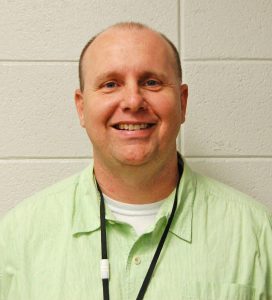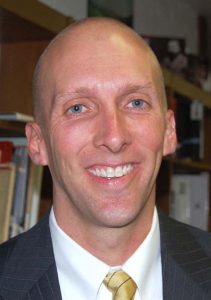Pension reform striking districts hard
Published 9:44 pm Saturday, February 3, 2018
School districts in Boyle County may have to pay out an extra $550,000 in pension contributions in the next fiscal year — for non-classified employees alone.
The County Employees Retirement System (CERS) covers all non-certified employees, including bus drivers, instructional assistants, custodians, food service workers and special education assistants.
Eric Kennedy, director of governmental services with the Kentucky School Boards Association, said a lot of people are surprised to find out that school districts will be impacted by increased contributions being required of CERS members.
“Just over half of the employees in that system are school employees,” Kennedy said. “Seven of the 10 largest employers are school districts. Any changes made to that fund are an issue to school boards.”
Just as county governments have made their yearly contributions, Kennedy said school boards have their made theirs. He said the Board of Trustees for CERS has increased the rate of contributions that will be required, based on what it thinks the rate of return on investment will be. The board determined that the employer contribution rate needs to increase “substantially” as of July 1, he said.
While CERS members paid contributions worth about 19 percent of their payrolls this fiscal year, they’re set to pay about 28 percent in 2018-19.
“That alone — even before budget or other cuts — that cost alone is a significant concern for school districts,” he said.
Boyle County

Kendra Peek/kendra.peek@amnews.com
David Morris, finance director for the Boyle County Schools
If nothing changes, the Boyle County School District will have to pay an additional $290,000 into CERS next fiscal year.
“We’ve got the letter of notification on that,” said David Morris, finance director for the Boyle County Schools.
Superintendent Mike LaFavers said school officials are carefully keeping an eye on what legislators in Frankfort might do about the state’s pension deficits. Any action during the general assembly could alter what the final cost is to the district.
“We’re waiting for a pension bill. It’ll have details we don’t currently know,” LaFavers said.
Not knowing all of the numbers is tough, especially considering all the other cuts to education that have been proposed by Gov. Matt Bevin, he said.

Kendra Peek/kendra.peek@amnews.com Mike LaFavers, superintendent Boyle County Schools
LaFavers said there are three ways a district can make up the difference in funding:
• cutting salaries or staffing numbers, which can impact quality of education;
• dipping into contingency funds, which is a short-term option; or
• raising taxes, which can impact the community.
“We want to develop a plan that has the least impact on children as possible,” he said.
Overall, the district is “in a strong financial position,” LaFavers said, but continued cuts will be difficult.
Danville Independent Schools

Kendra Peek/kendra.peek@amnews.com
Paul Dean, finance director for the Danville Independent Schools
The Danville Independent School District is required to pay an additional $260,000 into CERS, said Paul Dean, finance director for the district.
Superintendent Keith Look said it’s “unfortunate” that the conversation around pensions had become politicized.
“While folks would like to say that it’s not, if you can’t discuss or introduce the issue until after the filing date, you’re clearly saying it’s a political issue,” Look said. “We’ve got too many retirees and too many employees to allow the balance across an aisle to determine what their futures look like. That’s not a level of stability that anyone has been promised.”
Districts have been told they will also have to increase their contributions for retirees’ health insurance. Dean said he isn’t sure about what that increase could be. He’s heard eight percent, but “it’s still up in the air.”

Photo submitted
Keith Look, superintendent Danville Schools
Danville Board of Education member Steve Becker said he feels the district is in the “best financial shape” it has ever been, but the decisions being made at the state level are “throwing doubt on what the district will be able to accomplish financially.”
“The only means that a school district has to cover their bills is to increase property taxes,” said Becker. “So that domino-effect — I don’t think people realize how devastating this could be … You’re going to see huge property increases.”
Becker also serves on the board of directors for the Kentucky School Boards Association, which represents the welfare of 600,000 kids in Kentucky schools.
“I’m pretty passionate about the school, the kids, and I feel like I’m being personally assaulted by the governor,” he said.

Kendra Peek/kendra.peek@amnews.com
Steve Becker, board member for the Danville Independent Schools
He said the pension issue is “tearing up” districts financially, making it harder to have money for educating children.
Becker said it was important to note it’s not a political battle, but is about giving kids a good education.
“Everyone says, ‘Oh, it’s not going to affect me,’ but how do schools raise money? By raising taxes,” Becker said. “There’s no way we can raise enough taxes to make up the difference.”
Statewide
Kennedy said no proposal has yet been filed, but the legislature could enact an adjustment to the rate.
“Looking at that issue is a piece of the conversation that school boards have an interest in,” he said.
The CERS increases are a separate matter from pensions for teachers. The Kentucky Teachers Retirement System remains better funded than other systems, Kennedy said.
“Pension reform has very much been a moving target,” he said. As of right now, his office has heard that a bill affect pensions could begin moving forward “any day.”
“There’s no way to predict what will happen or when. I gather there are discussions between members of the House and Senate leadership almost constantly,” Kennedy said. “They are having several proposals reviewed by actuaries … As all of that continues behind the scenes, we are watching and waiting to see what gets proposed.”
Advocate-Messenger Editor Ben Kleppinger contributed to this report.





